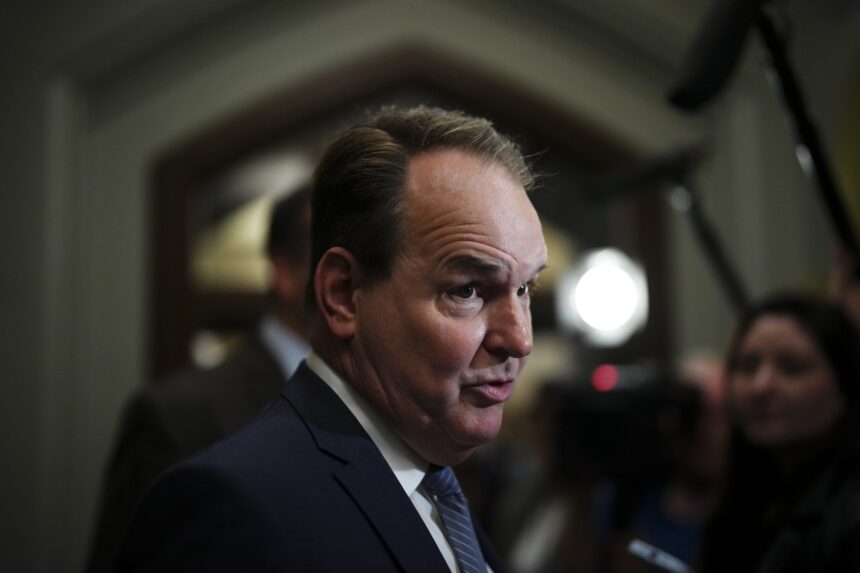In an unusual show of cross-partisan cooperation, Conservative MPs joined forces with the governing Liberals yesterday to limit debate on Bill C-5, the controversial legislation aimed at overhauling Canada’s digital privacy framework.
The motion to invoke time allocation passed 174-98, with New Democrats and Bloc Québécois members voting against the measure, arguing that such complex legislation deserves more thorough examination.
“When Canadians sent us here, they expected us to get things done, not delay endlessly,” Justice Minister David Lametti told reporters outside the House. “After three weeks of debate and committee hearings, it’s time to move forward on protecting Canadians’ privacy in the digital age.”
The bill, which proposes significant changes to how tech companies collect and use Canadians’ personal data, has been winding through Parliament since February. Industry stakeholders have presented sharply divided perspectives during committee hearings.
Conservative House Leader Andrew Scheer defended his party’s surprising support for limiting debate. “We’ve made our concerns clear, proposed reasonable amendments, and now Canadians deserve certainty. The tech sector can’t thrive in regulatory limbo.”
This rare alignment between the two major parties caught political observers off guard. Parliament Hill veterans note that opposition parties typically resist government attempts to accelerate legislation.
“I’ve covered Parliament for fifteen years, and this kind of cooperation on time allocation is genuinely uncommon,” remarked Chantal Hébert during CBC’s Power & Politics. “It signals that both parties see political advantage in getting this bill resolved before summer recess.”
According to a recent Abacus Data poll, 63 percent of Canadians support stronger digital privacy protections, though awareness of Bill C-5’s specific provisions remains low at just 27 percent.
Meanwhile, the NDP’s digital affairs critic Brian Masse condemned the move as “democratic corner-cutting” during a fiery question period exchange. “The government claims three weeks is sufficient to debate legislation that will shape how Canadians’ personal information is handled for decades to come. That’s not just wrong—it’s reckless.”
Bloc Québécois leader Yves-François Blanchet expressed particular concern over provisions that could potentially override Quebec’s provincial privacy legislation. “Ottawa once again shows its willingness to trample on Quebec’s jurisdiction when convenient,” he told reporters in the foyer.
The fast-tracking comes as Parliament faces a crowded legislative calendar with only nine sitting days remaining before the summer break. Government House Leader Mark Holland has identified Bill C-5 as one of five priority bills the Liberals hope to pass before MPs return to their ridings.
Tech industry representatives remain divided on the legislation. The Council of Canadian Innovators praised the expedited timeline, with CCI President Benjamin Bergen stating the sector “needs clarity to compete globally.” However, privacy advocates including OpenMedia have argued that rushing such consequential legislation risks embedding flawed provisions into law.
I spoke with Jennifer Stoddart, former Privacy Commissioner of Canada, who cautioned against haste. “The devil is always in the details with privacy legislation. Each clause deserves careful scrutiny because the consequences of getting this wrong are substantial and long-lasting.”
With debate now limited, the bill is expected to proceed to third reading by Tuesday, with a final vote potentially coming as early as Wednesday.
At community town halls I’ve attended across Ottawa and eastern Ontario this month, privacy concerns ranked surprisingly high among voters’ priorities. At a Nepean community center meeting last Thursday, nearly every hand went up when attendees were asked if they worried about how their data is used online.
“I just want to know who has my information and what they’re doing with it,” said Martha Keyes, 62, who attended the meeting. “If this bill helps with that, great, but I don’t understand why they need to rush it.”
The legislation would impose new obligations on companies to obtain meaningful consent for data collection, mandate data portability between services, and strengthen the Privacy Commissioner’s enforcement powers with potential penalties reaching up to 5% of global revenue for serious violations.
As Parliament moves toward a vote, the unusual Conservative-Liberal alignment on process, if not necessarily on content, demonstrates how the political calculations around digital policy continue to evolve in unexpected ways.






